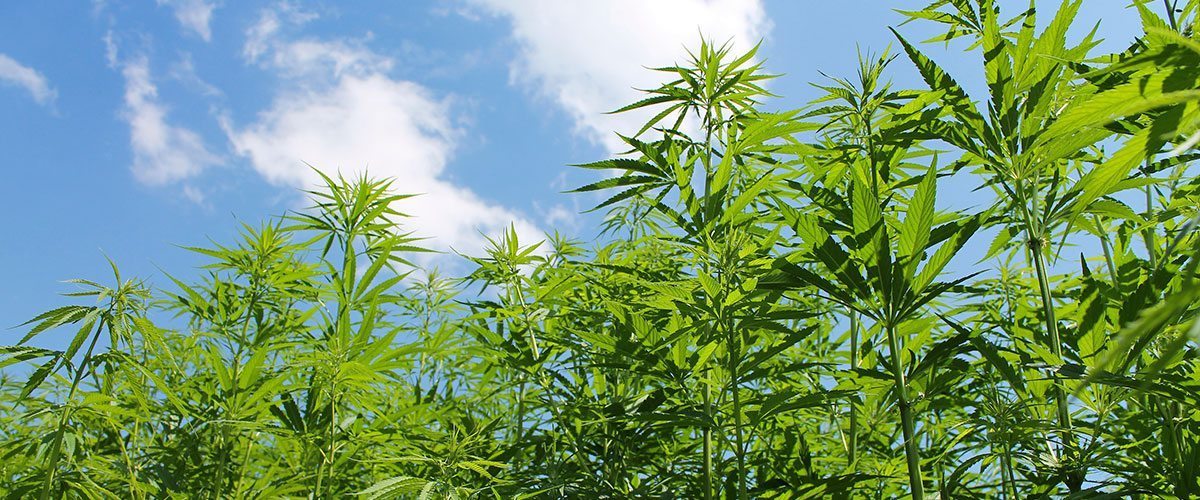[vc_row][vc_column][vc_column_text]
Hemp was recently harvested as part of a research program at a family farm in Virginia, a state where hemp was once a mainstay crop.
For the first time in decades, industrial hemp was harvested in the state of Virginia, the Culpeper Star Exponent reports. Working in cohorts with researchers at James Madison University, Glenn Rodes grew 10 acres of hemp on his family farm in Rockingham County.
Industrial hemp has a lengthy and flourishing history in Virginia dating back to the colonial years. Every farmer in Virginia was at one point required to grow hemp following a mandate passed by the Virginia Assembly in 1619, and the crop was even exchanged as legal tender. Once the War on Drugs hit in the 1930s, however, the growing of hemp and its cannabis family member marijuana were made illegal throughout the entire United States.
“People think it was tobacco that started this colony, but it was also hemp,” Jason Amatucci, founder and executive director of the Virginia Industrial Hemp Coalition, told the Culpeper Star Exponent.
Industrial hemp is a variety of the Cannabis sativa L. plant species and one of the oldest domesticated crops in history. Grown for its seeds and stalk, hemp is used to produce an array of products, including nutritional supplements, food, body care products, clothing, cordage, building materials, biofuel and paper. Hemp naturally contains just trace amounts of tetrahydrocannabinol (THC), which means that unlike marijuana it’s non-psychoactive and therefore won’t cause a high.
“There is a 70-year stigma that has been attached to it, but (hemp) is not a drug,” said Rodes.
Growing hemp remains illegal, but with the passing of the 2014 Farm Bill, state departments of agriculture can license the growing of industrial hemp for research purposes. Since the change in federal law, Virginia and 29 other states have passed legislation authorizing hemp research programs. Close to 10,000 acres of hemp were cultivated through research programs in the U.S. in 2016, double the amount cultivated in 2015.[/vc_column_text][/vc_column][/vc_row][vc_row][vc_column][vc_single_image image=”17298″ img_size=”1200×250″ onclick=”custom_link” link=”https://www.medicalmarijuanainc.com/why-do-we-refer-to-hemp-as-industrial-hemp/”][/vc_column][/vc_row][vc_row][vc_column][vc_column_text]Rodes planted his plot of hemp, a plant that can grow eight feet tall, behind rows of corn to keep it concealed. Every one of his farm hands working with the crop, as well as any JMU undergraduate students involved with the project, had to first pass a criminal background check. Researchers at JMU were using this season to test whether conventional farm equipment are efficient tools for planting and harvesting hemp.
“I think this is a crop that has a high potential for growth in Virginia,” said Michael Renfroe, biology professor at JMU, in regards to the research’s preliminary results. “I think we will be able to find some very useful cultivar for both fiber and oil production. It could be a good crop for small-acreage farmers.”
“Initially, I believe food products will be the value of the crop until a fiber infrastructure is set up in our country,” said Rodes. “But that is not going to happen until the federal law changes to allow industrial hemp production.”
Large-scale commercial hemp production remains prohibited, but there are currently two bills pending in Congress that would exclude hemp containing less than 0.3 percent THC from the definition of marijuana.
As for now, hemp must be imported. With the U.S. retail hemp market worth about $573 million in 2015, the legalization commercial hemp production would no doubt generate a significant financial boom to domestic farmers.
“We literally have millions of cars on the road that have hemp parts in them,” said Eric Steenstra, executive director of the HIA. “You don’t even know it’s there, because it’s underneath the leather and trim of the car. A lot of those parts are made by American companies, but they are made with imported (hemp) fiber. Our farmers are left out of that market.”
You can learn more about the differences between hemp and marijuana here. Keep up with the progression of the cannabis industry by regularly visiting our news feed.[/vc_column_text][/vc_column][/vc_row]






